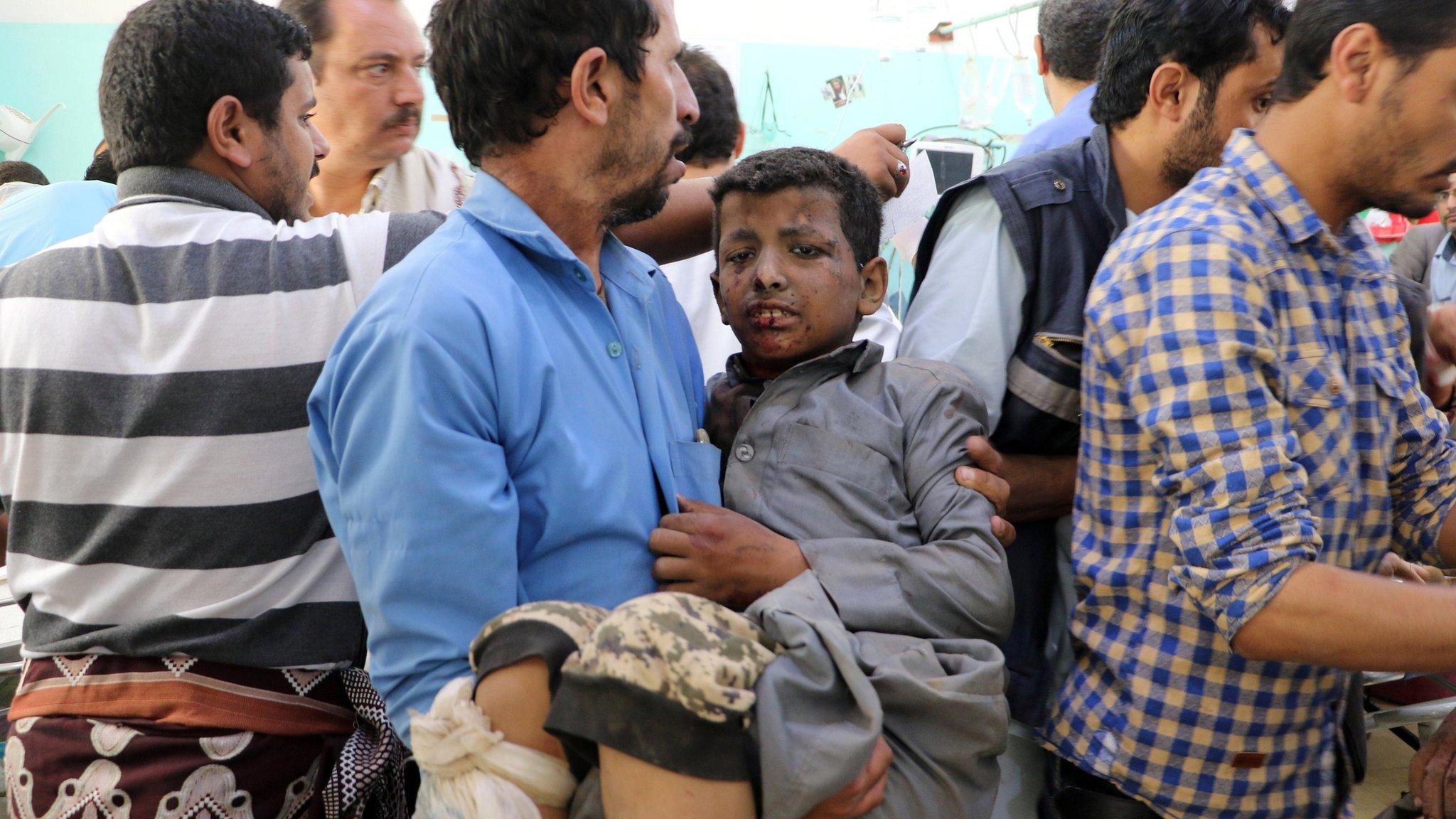Yemen war: Saudi coalition war crimes investigation 'not credible'
- Published
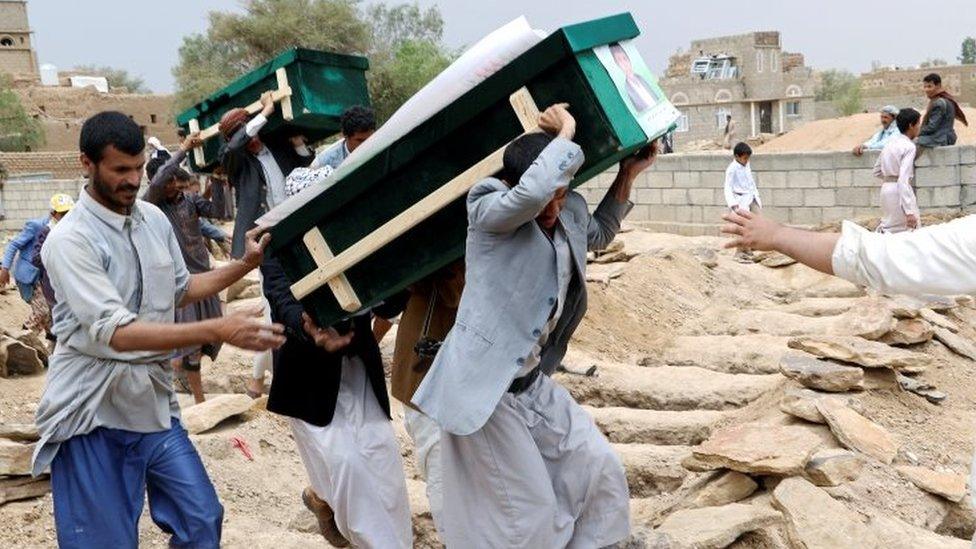
There was global condemnation when 44 schoolboys were killed in an air strike earlier this month
The Saudi-led coalition fighting Houthi rebels in Yemen has failed to properly investigate war crimes allegations there, Human Rights Watch says.
"The investigators were doing little more than covering up war crimes," HRW's Sarah Leah Whitson said.
Separately, a missile strike in the west has killed several civilians. Both sides blamed each other.
The coalition has come under increased pressure since an air strike killed more than 40 children this month.
The Saudi-led alliance, which is backing Yemen's government in its war with the Houthi rebels, has repeatedly denied allegations of war crimes, and says its air strikes are not directed at civilians.
It vowed to carry out an investigation after widespread condemnation of the attack on a bus carrying school children on 9 August.
However, the Human Rights Watch report published on Friday called into question the coalition's credibility with investigations into its own military actions in Yemen.
What does the report say?
The campaign group said the work of the alliance's own investigators - known as the Joint Incidents Assessment Team (JIAT) - had "fallen far short of international standards "and "lacked credibility".
It said the vast majority of JIAT's conclusions found the coalition had either acted lawfully, was not responsible for the attack, or had made an "unintentional" mistake.
The report shows that JIAT recommended the coalition carry out further investigations, external or disciplinary action in just two of 75 conclusions made public.
Aftermath of an attack that shocked the world
Human Rights Watch says an air strike in September 2016 that killed and wounded dozens of civilians was deemed an "unintended mistake". However, the rights group said it had found evidence of at least 11 bomb craters when it visited the site.
HRW alleges this to be part of an attempt to shield military personnel from criminal liability.
The Saudi-led coalition has not responded to the HRW report.
What about other players?
Ms Whitson, HRW Middle East director, also warned governments providing arms to Saudi Arabia that these "sham investigations" do not protect them from being complicit in violations in Yemen.
The coalition against the rebels receives logistical and intelligence support from the US, UK and France.
The deadly attack on 9 August led some members of Congress to question America's role in the Yemen conflict, after CNN reported that the bomb used was supplied by the US.
Meanwhile British Foreign Secretary Jeremy Hunt has defended UK ties with Saudi Arabia, which he described as a "very, very important military ally".
UK Foreign Secretary Jeremy Hunt says the UK's relationship with Saudi Arabia "stops bombs going off on the streets of Britain"
What happened in the latest strike?
Just before the HRW report was released, news emerged of a fresh air strike that killed a number of civilians in Al-Durayhimi south of the strategic port of Hudaydah.
It is not yet clear who carried out the attack, with the Houthi rebels and Saudi-led coalition blaming each other.
A Houthi-run news agency said women and children were among the 31 people killed or wounded after a missile hit a bus. But the UAE, which is a coalition partner, says it was the Houthis firing an Iranian-made missile.
The Emirati state news agency said a child was killed and dozens more were wounded.
What is the coalition doing in Yemen?
Yemen has been devastated by a conflict that escalated in early 2015, when the Houthis seized control of much of the west of the country and forced President Abdrabbuh Mansour Hadi to flee abroad.
The conflict in Yemen has been raging for years - but what is it all about?
Alarmed by the rise of a group they saw as an Iranian proxy, the UAE, Saudi Arabia and seven other Arab states intervened in an attempt to restore the government.
Nearly 10,000 people have been killed - two-thirds of them civilians - and 55,000 others injured since the conflict began, according to the UN.
- Published23 August 2018
- Published18 August 2018
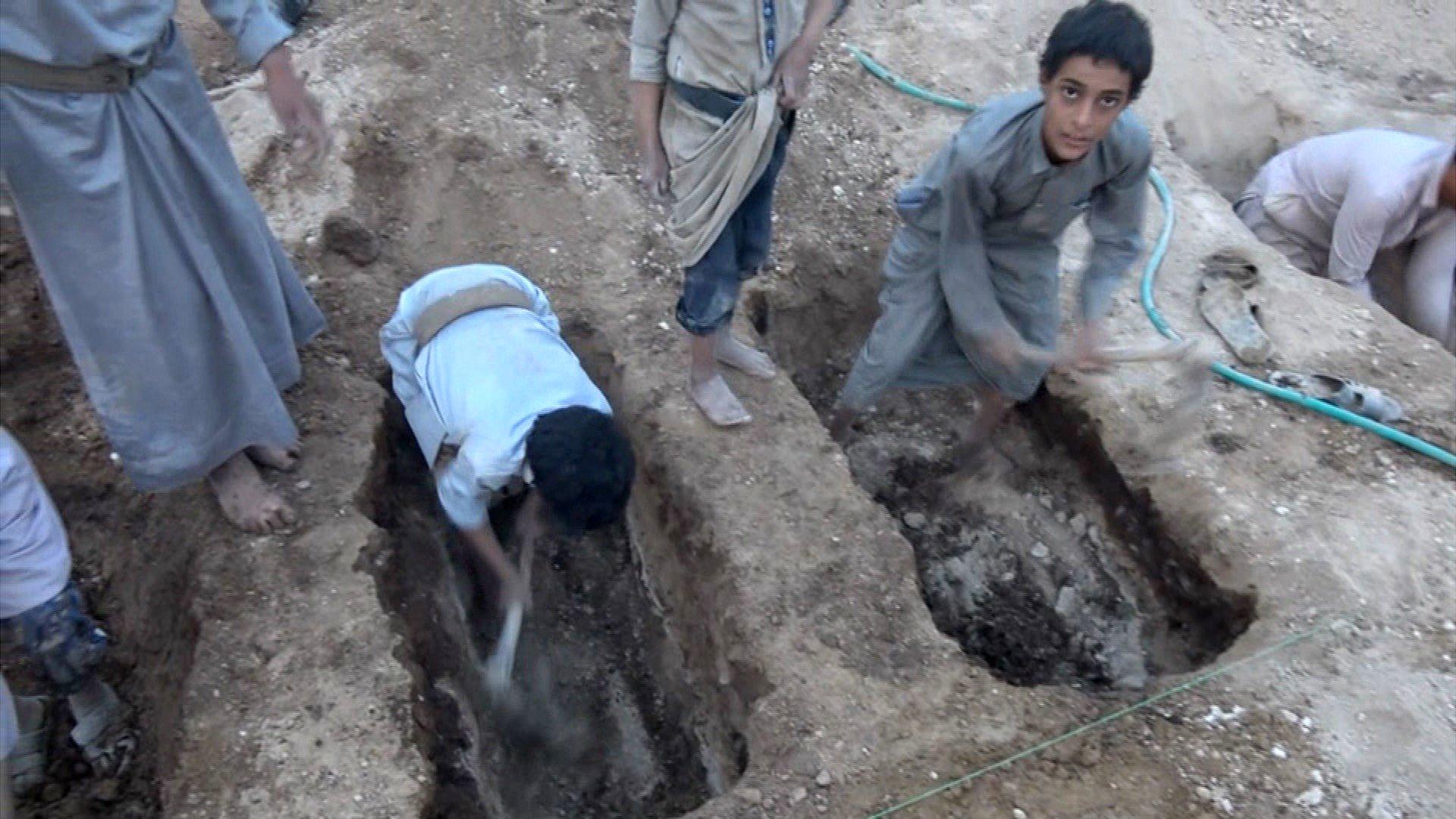
- Published13 August 2018
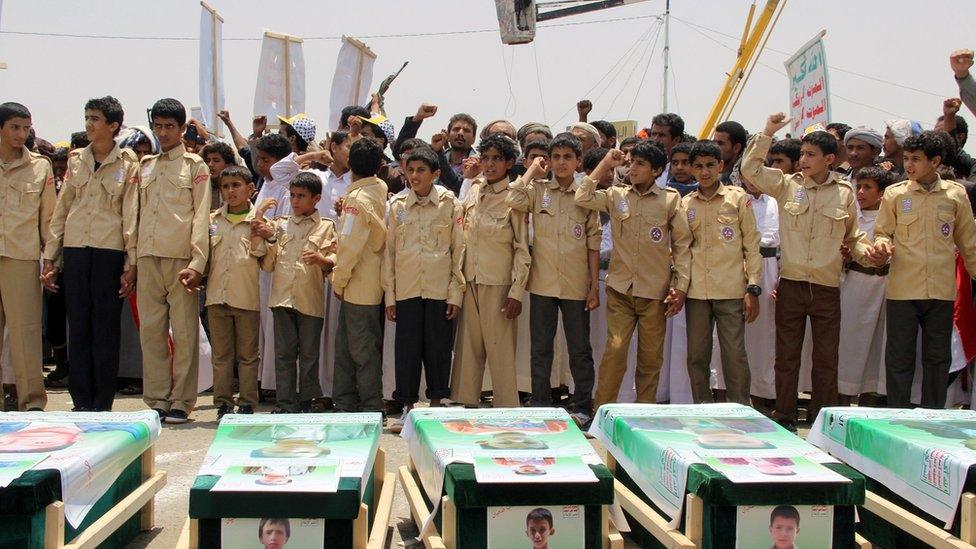
- Published10 August 2018
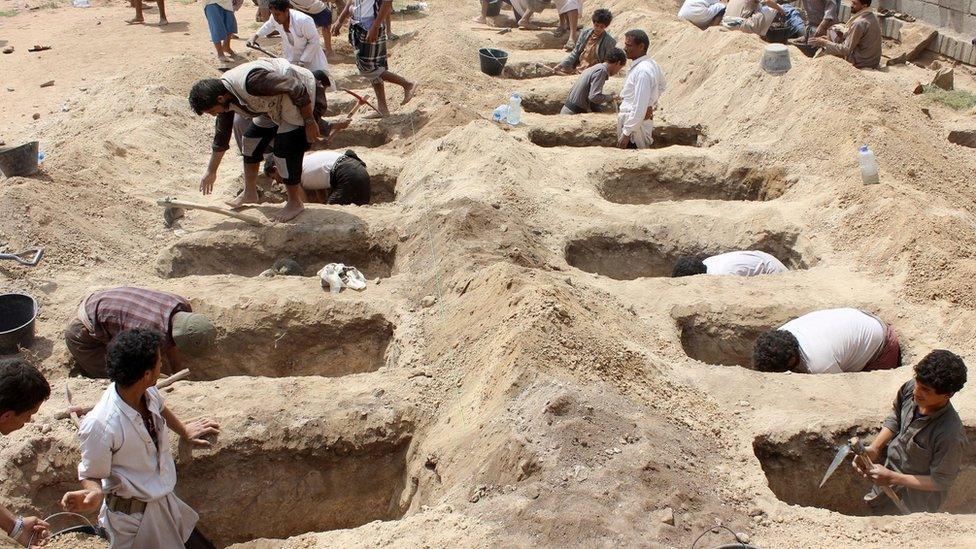
- Published9 August 2018
